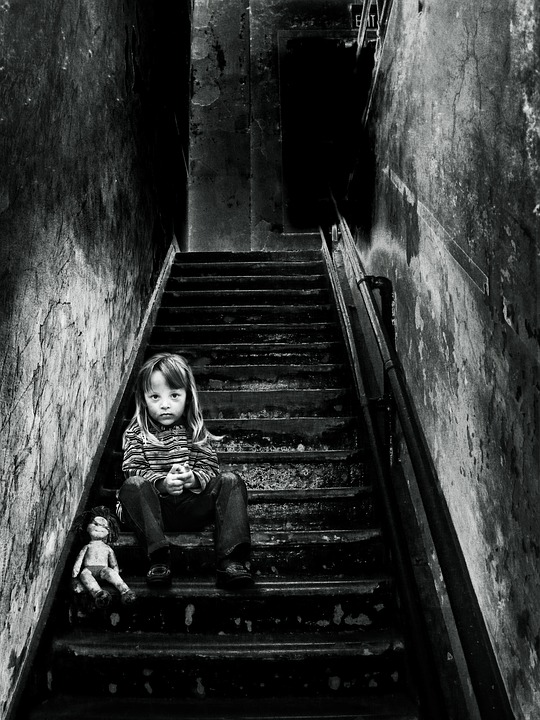autism and anxiety
Autism and Anxiety – Please can you help a Product Design Engineering student at Glasgow University with her research survey!
A few days back Cerys Murray-Scott, a Product Design Engineering student at the University of Glasgow, asked us to help her find people to take part in a research survey as part of her Master’s degree study! Ms Murray-Scott is interested in developing a product which can help people on the autism spectrum with anxiety.
Murray-Scott writes “I am a student at the University of Glasgow doing a project with the aim to reduce anxiety for people with Autism specifically when travelling.
If you or someone you know has Autism it would be great if you could spare a few minutes to complete my survey.
This will help me to design a successful product that will genuinely benefit users.
Who- If you or someone you know has Autism
Length- 7 short questions
Time- 5 to 10 minutes to complete
Thanks!”
You can take part by clicking the link to her survey here
https://www.surveymonkey.co.uk/r/Y5CWLK7
Anxiety – so what are anxiety disorders. Get the facts with this great infographic.
Over the years we have covered anxiety at some length on PatientTalk.Org. Indeed our blogs on the subject looked at some of the signs and symptoms of anxiety. But also to an interview with a lawyer telling us a bit more about your legal rights if you suffer from anxiety.
As some readers will you I am the parent of an eight year old boy with Autistic Spectrum Disorder or ASD. One of the most common symptoms of autism is, in fact , anxiety. So as you can imagine anxiety is an important issue to us as a family.
Do I was delighted to find this excellent infographic which gives a great overview of the whole area of anxiety.
Autism Research – Get informed about the latest Autism Research from ICAN – Part 1
As many of you will know we have been working with the Irish Centre for Autism and Neurodevelopmental Research (ICAN) is helping the locate people prepared to participate in their survey research.
As a way of thanking you for your help they would like to share with you some of the results of their research work. Topics include autism and anxiety, autism and epilepsy, autism and gastrointestinal problems, sleeps disorders and autism
- Mannion, Leader, & Healy (2013). An investigation of comorbid psychological disorders, sleep problems, gastrointestinal symptoms and epilepsy in children and adolescents with autism spectrum disorder.
http://www.sciencedirect.com/science/article/pii/S1750946712000487
- Mannion & Leader (2013a). An analysis of the predictors of comorbid psychopathology, gastrointestinal symptoms and epilepsy in children and adolescents with autism spectrum disorder.
http://www.sciencedirect.com/science/article/pii/S1750946713001980
- Mannion & Leader (2013b). Comorbidity in autism spectrum disorder: A literature review.
http://www.sciencedirect.com/science/article/pii/S1750946713001773
Williams, Leader, Mannion, & Chen (2015). An investigation of anxiety in children and adolescents with autism spectrum disorder.
http://www.sciencedirect.com/science/article/pii/S175094671400258X
- Mannion & Leader (2014a). Attention-Deficit/Hyperactivity Disorder in Autism Spectrum Disorder.
http://www.sciencedirect.com/science/article/pii/S1750946713002699
We would like to that Arlene Mannion of ICAN for collating this research. If you have any questions for Ms Mannion please use the comments box below and we will ask her to respond.
The second part of this research will be published next week.
Autism and Anxiety : “An Investigation of Anxiety in Children and Adolescents with Autism Spectrum Disorder” – The results of recent research from The Irish Centre for Autism and Neurodevelopmental Research h
Today we are delighted to present the top line findings.
If you have any comments or questions please feel free to use the comment boxes at the bottom of this blog.
This study looked at the prevalence of symptoms.
• 10% of participants were found to have borderline clinical anxiety levels, while 75% of participants obtained scores which placed them in the clinical range for anxiety. This finding is particularly interesting as a diagnosis of an anxiety disorder was reported for only 25% of the sample.
• Gastrointestinal (GI) symptoms (i.e. nausea, bloating, diarrhoea, constipation, abdominal pain) were experienced by 80% of the sample within the last three months.
• Sleep problems were reported by 92% of the sample.
• At least one form of challenging behaviour (self-injurious behaviour, aggressive/destructive behaviour, stereotypic behaviour) was reported for 90% of the sample.
This study investigated the relationships between anxiety and other symptoms.
• Anxiety was found to be related to overall GI symptoms, indicating that higher levels of anxiety are associated with higher levels of GI issues. Specifically, nausea and constipation were found to be correlated with anxiety in this sample.
• Anxiety was found to be related to sleep problems, indicating that higher levels of anxiety are associated with higher levels of sleep problems in children and adolescents with ASD. Specifically, sleep onset delay, sleep duration, sleep anxiety, parasomnias, and daytime sleepiness were found to be correlated with anxiety levels in this sample.
• This study did not find an association between anxiety and challenging behaviour.
This study was also interested in looking at the factors which predicted anxiety.
• Sleep problems were found to positively predict anxiety in the current study. This means that high levels of sleep problems predict that an individual will also experience high levels of anxiety.
• Age was found to be a significant positive predictor of anxiety. This suggests that young people with ASD experience an increase in anxiety levels as they grow older.



